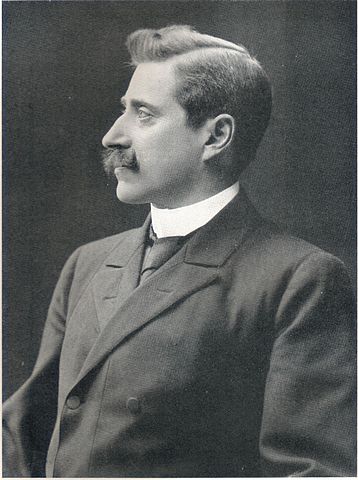Why was Verner von Heidenstam Awarded the Nobel Prize for Literature in 1916?
Verner von Heidenstam: Nobel Prize for Literature in 1916
Verner von Heidenstam, the eminent Swedish author, was awarded the Nobel Prize for Literature in 1916, marking a significant recognition of his exceptional literary contributions. The prestigious prize was bestowed upon him for several compelling reasons, which highlighted his impact on the world of literature and his significant influence on Swedish cultural heritage.
1. Prolific Literary Achievements:
Verner von Heidenstam’s literary career was characterized by an impressive body of work that encompassed various genres. He demonstrated his versatility as a writer, excelling in poetry, prose, and essays. His writings exhibited a unique and masterful style, captivating readers with his profound insights and eloquent expression of emotions. Throughout his career, he produced a rich and diverse collection of works that resonated with audiences both in Sweden and abroad.
2. Preservation of Swedish Cultural Heritage:
One of the primary reasons behind Heidenstam’s Nobel Prize win was his dedication to preserving Sweden’s cultural heritage through literature. He drew inspiration from Swedish history, folklore, and traditions, skillfully weaving them into his narratives. By doing so, he revitalized and celebrated the essence of Swedish identity, instilling a sense of national pride and belonging among his readers. Heidenstam’s commitment to showcasing the country’s cultural heritage was highly regarded by the Nobel committee.
3. Advocacy for Social Justice:
Beyond preserving cultural heritage, Heidenstam’s writings often delved into important societal issues, making him an influential advocate for social justice. He used his literary platform to shed light on the struggles faced by marginalized individuals and challenged prevailing norms and prejudices. Through his insightful portrayals and thought-provoking narratives, he sparked discussions on topics ranging from poverty to equality, leaving a lasting impact on readers and society as a whole.
4. Artistic Innovation:
As an artist, Heidenstam embraced innovation and experimented with literary techniques, pushing the boundaries of traditional forms. He infused his writings with vivid imagery, symbolism, and metaphors, captivating readers with the beauty and depth of his language. His aesthetic innovations contributed significantly to the evolution of Swedish literature, earning him admiration from fellow writers and literary critics.
5. International Recognition:
Verner von Heidenstam’s works transcended national borders, garnering international recognition and acclaim. His profound understanding of human nature and his exploration of universal themes allowed his writings to resonate with audiences worldwide. The Nobel committee acknowledged his exceptional ability to bridge cultural divides and foster a sense of literary unity on a global scale.
Verner von Heidenstam’s Nobel Prize for Literature in 1916 was a well-deserved honor that recognized his exceptional literary talent and profound impact on Swedish cultural heritage. Through his diverse writings and advocacy for social justice, he left an enduring legacy in the world of literature. His ability to intertwine cultural heritage with innovative storytelling continues to inspire writers and readers alike, cementing his place as one of Sweden’s most celebrated literary figures.





